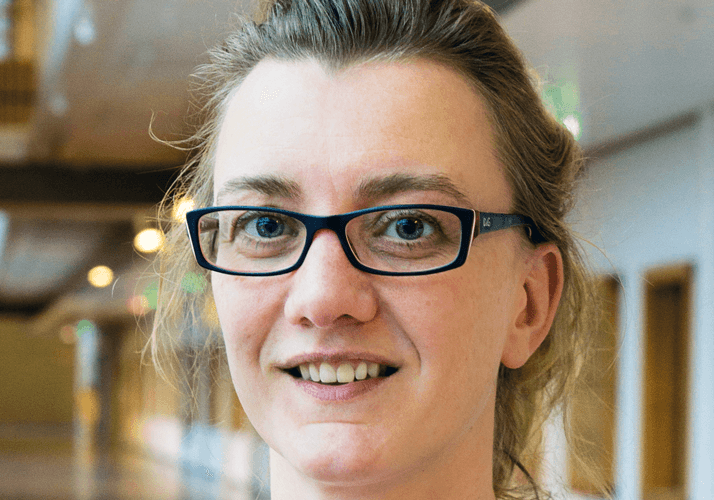
What led you to study the genetics of vision loss? Well my father was a researcher, and that played a part in my becoming a researcher too – perhaps it’s genetic! During high school I decided to study biomedical sciences because of my interest in how the human body works, and following that I wanted to pursue a PhD in genetics. It so happened I had the opportunity to work on a project searching for genes implicated in retinal dystrophy. At first, the project was secondary to the chance to work in genetics, but I found retinal dystrophy very compelling – I’d never heard of these diseases before, which can cause young children to go blind, and there’s nothing that can be done to treat it. It really struck me. How has our understanding of inherited retinal disease changed? The past 20 years have seen huge changes in genetics, we have so much now, in terms of knowledge and technology that we didn’t before. Not only has the human genome been sequenced, but also new technologies like microarrays, exome and even whole genome sequencing have become available. This has had a huge impact on our understanding of many diseases. For example, take a disease like Leber congenital amaurosis (LCA) – 20 years ago we didn’t know any of the genes involved, and now we’ve found 19. That accounts for more than 80 percent of patients, so it’s made a huge difference.
You were involved in discovering the majority of the genes implicated in LCA; what impact has this had? Well firstly, it lets us establish a diagnosis – when a child is losing his or her sight, getting that diagnosis can really help their parents cope, it gives them some answers. Then of course there are gene therapies in development – for patients with RPE65 mutations these have been shown to be successful, and are now at the clinical trial stage. Gene therapy for retinal disease – where is it going? Gene therapy is a hot topic at the moment, and we’ve seen a lot of gene therapy trials appearing. But there’s still work to be done – for example the long-term effects of RPE65 gene therapy in patients with LCA haven’t been as promising as we had hoped, and their retinal degeneration continues to progress. So there’s a need for optimization; for example, using different and more effective vectors. But I think we also need to further explore the more general approaches, such as retinal implants and stem cells, as I think they also hold a lot of promise.
Which of your discoveries stands out most to you? Looking back, I think that would have to be the discovery that mutations in the CEP290 gene account for 15–22 percent of all LCA cases in the United States and Europe. At least 35 mutations that can cause LCA have been identified to date, but the identification of this group meant that there was a large proportion of patients with LCA that could be targeted for gene therapy. This is something we’ve been working on in our lab, and I believe that CEP290-specific therapies could be moving towards the clinic in the next few years. What is your current research focus? I’d been working on inherited retinal disease since undertaking my PhD studies, and since then, I had the opportunity to start my own research group, back in 2008. There was a huge interest in AMD, as there’s so much still to be discovered and understood, so I shifted my focus. I’m now looking at the genetics, and environmental factors, that influence AMD – it needs quite a different approach to my previous work. In some ways, studying multifactorial disease is much more challenging than studying inherited disease.
What’s a typical day like? Usually I’ll have some meetings with my team members, catching up and making sure everyone knows what they’re supposed to be doing. I also spend time writing and correcting manuscripts describing our results, and writing grants to obtain funding. What do you enjoy most about your work? Making new discoveries is such an exciting part of being a scientist, especially discoveries that could end up in the clinic, benefitting patients. It’s also great to work with young, talented researchers – we have a group of PhD students, and I find it so motivating to work with them, and watch them grow and develop. If you could start again, would you do things differently? No, I don’t think I’d change a thing – I’m really happy with how my career developed, and the work that I’m doing now.
